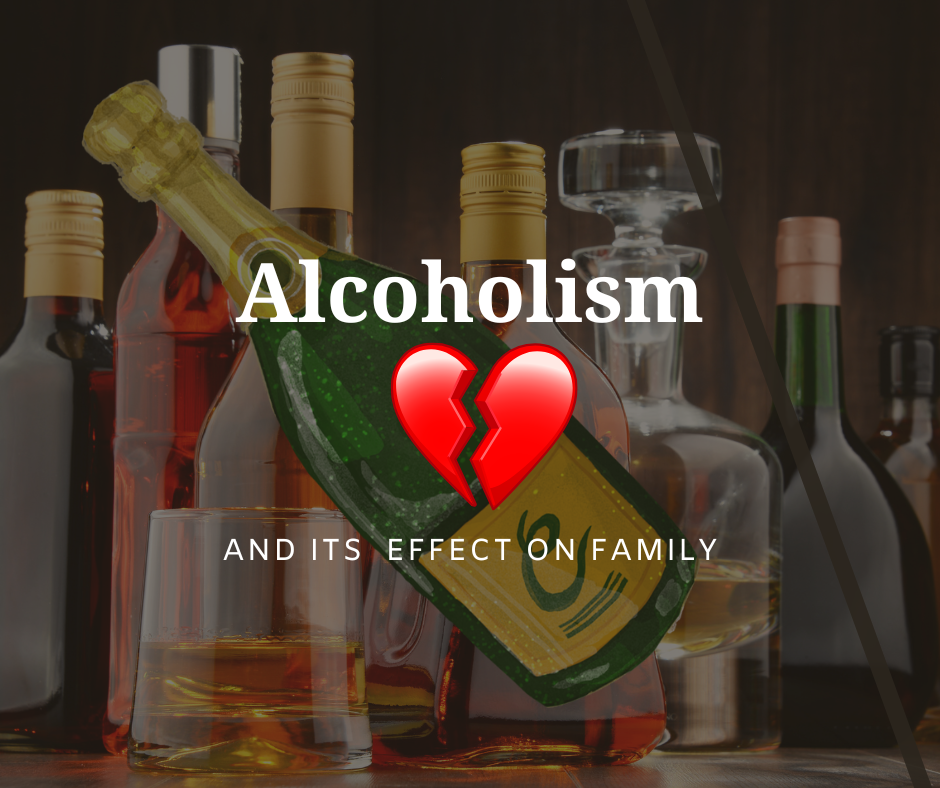Alcoholism is a widespread issue that doesn’t just affect the individual struggling with addiction; its effects ripple across families, causing emotional distress, financial strain, and social isolation. Families bear the brunt of the consequences, often leading to broken relationships and a cycle of pain that spans generations. In this blog, we’ll explore how alcoholism impacts families, the specific ways it harms relationships, and the steps you can take to combat its devastating effects.
What is Alcoholism and Why Should Families Care?
Alcoholism, or alcohol use disorder (AUD), is a chronic condition characterized by an inability to control or stop drinking despite negative consequences. While individuals suffer from physical and mental health problems, their families face equally significant challenges.
When a family member becomes dependent on alcohol, the household dynamics are disrupted. Whether it’s a parent, partner, or sibling, their addiction becomes a shared burden, creating an environment of stress, anxiety, and even trauma.
Emotional Effects of Alcoholism on Families
1. Damaged Relationships
Alcohol addiction is notorious for damaging the trust and connection between family members.
Frequent conflicts: Arguments over drinking habits and neglect of responsibilities create constant tension.
Broken trust: Partners and children often feel betrayed when promises to quit drinking are repeatedly broken.
Emotional distance: Alcoholics may prioritize drinking over spending quality time with loved ones, leaving others feeling unimportant.
2. Emotional Trauma for Children
Children are among the most vulnerable members of families dealing with alcoholism.
They often feel neglected or abandoned as the alcoholic parent becomes emotionally unavailable.
Fear and insecurity dominate their childhood, which can lead to anxiety disorders or attachment issues later in life.
Witnessing arguments or abusive behavior can leave lasting scars, making it hard for children to form healthy relationships.
3. Anxiety and Depression in Partners
Spouses or partners often bear the weight of the household while also dealing with their own emotional struggles.
They may feel overwhelmed by the responsibility of managing finances, children, and household duties alone.
Feelings of hopelessness or depression are common, especially if the alcoholic refuses to seek help.
Many partners develop codependency, where their lives revolve around managing the alcoholic’s behavior, often at the expense of their own well-being.
Psychological Effects of Alcoholism on Families
1. Mental Health of Family Members
Living with an alcoholic can have long-term effects on mental health.
Family members may experience chronic stress, which can lead to anxiety, depression, or even PTSD.
Children in particular are at risk of developing low self-esteem, feelings of worthlessness, or fear of abandonment.
The constant unpredictability of the alcoholic’s behavior can create an unstable and chaotic home environment.
2. Intergenerational Impact
The effects of alcoholism often extend beyond one generation.
Children who grow up in alcoholic households are more likely to struggle with substance abuse themselves.
Dysfunctional family patterns, such as poor communication or unresolved anger, are often passed down, perpetuating the cycle.
Financial Effects of Alcoholism on Families
1. Loss of Income and Productivity
Alcohol addiction frequently leads to job loss or reduced productivity at work, which directly impacts the family’s financial stability.
The alcoholic may miss work due to hangovers or health issues caused by excessive drinking.
Some even lose their jobs entirely, placing the entire financial burden on their partner or other family members.
2. Increased Expenses
The cost of maintaining an addiction is significant, as alcohol can consume a large portion of the family’s budget.
Medical bills for health complications like liver disease or injuries caused by accidents related to drinking further add to the financial strain.
Legal issues, such as DUIs or arrests, bring additional expenses in the form of fines or lawyer fees.
3. Cost of Recovery
Seeking professional help, while necessary, can be expensive.
Rehabilitation centers, therapy sessions, and medication for withdrawal symptoms may not be affordable for all families.
This creates additional stress for families already struggling with financial challenges.
Social Effects of Alcoholism on Families
1. Isolation from Friends and Community
Families often feel ashamed of their situation, leading them to withdraw from social interactions.
The stigma attached to alcoholism makes it hard for families to seek support from friends or community members.
Social isolation can exacerbate feelings of loneliness and helplessness, making recovery even harder.
2. Impact on Children’s Social Development
Children from alcoholic households often struggle with making friends or participating in social activities.
They may feel embarrassed about their family situation, leading to avoidance of social gatherings.
A lack of confidence and trust in others can hinder their ability to form meaningful relationships.
Breaking the Cycle: Steps Toward Recovery
1. Acknowledge the Problem
The first step to recovery is recognizing the impact alcoholism has on the family.
Open and honest communication is essential to address hidden feelings and resentments.
Acknowledging the issue can pave the way for collective action toward healing.
2. Seek Professional Help
Professional support is crucial for both the alcoholic and their family.
Therapy and counseling help families understand the root causes of alcoholism and how to cope effectively.
Rehabilitation programs and support groups, like Alcoholics Anonymous (AA), provide a structured path to sobriety.
3. Build a Support Network
Families can benefit from joining support groups like Al-Anon, which are specifically designed for the loved ones of alcoholics.
These groups offer emotional support, practical advice, and a sense of community.
A strong support network can make a significant difference in the recovery process.
4. Foster a Healthy Home Environment
Creating a positive and supportive home environment is essential for long-term recovery.
Encourage open dialogue and set clear boundaries to rebuild trust.
Engage in activities that promote togetherness and healthy communication, such as family dinners or therapy sessions.
While the effects of alcoholism on families can be devastating, there is hope for recovery and healing. With the right support and resources, families can overcome the challenges posed by alcohol addiction. It requires patience, persistence, and a willingness to work together, but rebuilding a loving and supportive family dynamic is possible.
By understanding the impact of alcoholism and taking proactive steps, families can break free from the cycle of pain and create a brighter future for everyone involved.




